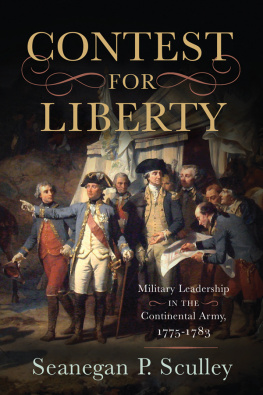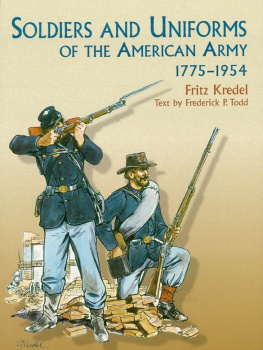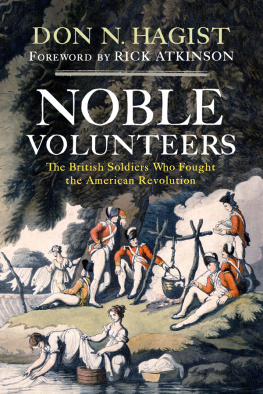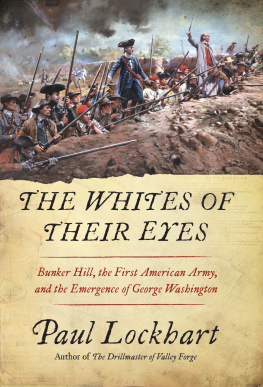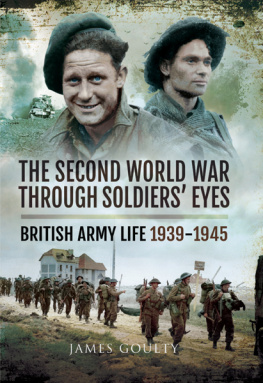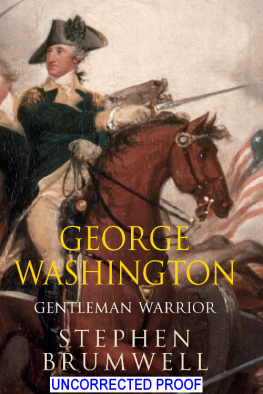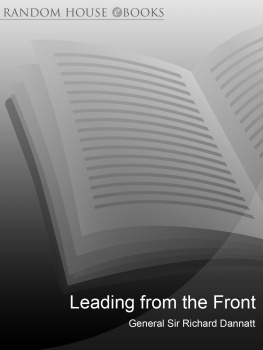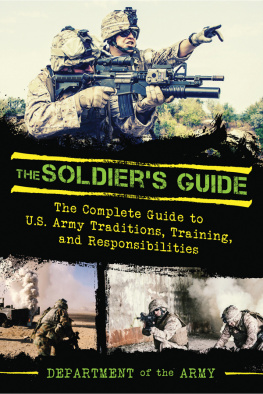All rights reserved under International and Pan-American Copyright Conventions. No part of this book may be reproduced in any form or by any electronic or mechanical means, including information storage and retrieval systems, without permission in writing from the publisher, except by a reviewer who may quote brief passages in a review.
Produced in the United States of America.
INTRODUCTION
LEADERSHIP IN THE CONTINENTAL ARMY AS A NEGOTIATION OF AUTHORITY
ON JULY 3, 1775, WASHINGTON WROTE HIS FIRST GENERAL ORDER as commander of the Continental Army. To accurately determine how many men were fit for duty, he told the regiments surrounding Boston to conduct a muster and report their numbers to his headquarters. In less than a week, the first and only commander in chief was taking command, in a very assertive manner, of the Continental Army.
Yet the army Washington took command of that week was not truly a continental army. It was largely an army from New England that had just accepted a Virginia planter as its leader. When Washington was finally able to get strength reports into his headquarters from the regiments, he learned approximately 19,500 soldiers were present and fit for duty. Five colonies were represented and, while
The new commander in chief was not pleased with the soldiers and officers he met in Cambridge that summer. The officers lacked courage and the soldiers were a dirty and nasty people. But he did judge them willing to fight well. Writing his brother on August 20, 1775, Washington claimed these soldiers could have defeated the British regulars at Bunker Hill two months before if they had been led by good, courageous officers ready to provide the leadership needed to win.
Why did these soldiers from New England make such a poor initial impression on their new commander? Perhaps his expectations were too high before he arrived. From the distant colonies of Virginia and Pennsylvania, the battles at Lexington and Concord in Massachusetts on April 19, 1775, must have appeared a validation of republican ideals. As Washington described that day to his friend, George William Fairfax, American citizens under arms successfully defended their liberties and stopped Ministerial Troops from destroying private property. The British retreat was a rout, despite reinforcements from Lord Percys brigade, and Washington hoped this would convince Lord Sandwich that Americans would fight to protect what was rightfully theirs and they would do so successfully.
Of course, this account, based on reports received in Philadelphia just prior to Congress assuming control of these armed men surrounding Boston, did not include an understanding of the difficulties faced by the officers in charge at Cambridge. Artemus Ward, commanding from Cambridge, spent the months from April to July trying to organize a camp of almost twenty thousand soldiers who possessed little experience living in such a large community. Boston was the largest town in the region and its population was no more than sixteen thousand at the time. Ward gave orders regulating latrine duty and other tasks required to prevent the spread of disease among the soldiery while he prohibited prostitution, profanity, and excessive drinking. The men were to attend sermon daily and maintain the protection and sanctity of God.
Convincing the soldiers to follow these rules was not an easy task. Though some of the officers, including Ward, had served during the French and Indian War twelve years prior, most of the enlisted soldiers and many of the younger officers had little military experience. Their conception of military service came from militia drills in their towns and stories told by their elders. David How, a seventeen-year-old boy from Methuen, Massachusetts, was one of these soldiers encamped around Boston. He and his five brothers all served in the Revolution and David was both a minuteman at Lexington and a soldier in Colonel Paul Dudley Sargents regiment at Breeds Hill. While these portions of Hows diary suggest elements of discipline were being enforced, other portions of his account illustrate that Private How did not believe his officers were entitled to his unqualified obedience. Instead, there appeared to be little social distance between privates and the officers in charge of them at the company level.
For the next few months after the weapon inspection, Private How sold his original musket to a colonel, purchased a new musket, and then sold it to another soldier, always at a profit to himself. It is hard to imagine Lieutenant Chandler lowering himself to borrow money from someone he viewed as significantly socially inferior. Instead, these soldiers looked more like young acquaintances traveling together on a military adventure.
While this business of borrowing money and buying and selling muskets testifies to Hows personal (and possibly cultural) views on the merits of the entrepreneurial spirit, it also underscores the difficulties faced by more senior officers. Soldiers experienced months of boredom as they waited for the British to make another attempt to attack outside of the confines of Boston. Men paid prostitutes for entertainment, drank liquor excessively, and gambled their money away. Two soldiers combined the sins of drunkenness and gambling,
Other reports from observers not members of the army confirm both the difficulties faced by military leaders attempting to enforce discipline and the cultural bias that could color perceptions of these men mustered to defend Boston. A British Army surgeon, using his position as a doctor to gain admittance to the rebels camps, described the men he encountered as drunken, canting, lying, praying, hypocritical rabble who... without New England rum... could neither fight nor say their prayers.
While the reality of disciplinary problems probably clashed with his ideal of a virtuous republican army, it also certainly ran contrary to Washingtons desire to command a more professional army capable of defeating British forces in a conventional war. Washingtons ideas regarding the necessary qualities of a successful army had been developed during the French and Indian War. He spent time serving as a volunteer officer under the tutelage of several British commanders and was the first commander of the Virginia Regiment in 1756 and 1757. During that time, especially while training his regiment, Washington attempted to mold himself into a professional officer and disciplined his men to meet the same professional standards.
Central to his conception of military professionalism was the belief that officers exercised the right to command through social recognition If an officer exemplified his personal honor to his soldiers, they would, in return, confer the right to command them on the officer. Personal honor was, then, the prerequisite to leadership because it governed proper behavior for the leader that would be recognized by his followers.
Historian Bertram Wyatt Brown explains this understanding of honor in the southern colonies as a combination of three necessary elements: a sense of self-worth in the individual, a show of that worth to the public, and an acceptance of that worth by the public. A man of honor had first to believe himself worthy of esteem among others in his society and then exemplify that worthiness to his community. Yet that was not enough. The most important component to this formulation was the acceptance of the community that this mans actions adequately proved his worth. If the community agreed, honor was conferred. It was this concept of personal honor that Washington found lacking in the officers and soldiers of the new Continental Army. From his perspective, New England officers did not appear concerned if their actions failed to reflect the necessary sense of self-worth nor did the soldiers convey the proper attitude of acceptance that the officers were worthy of commanding obedience to orders.

